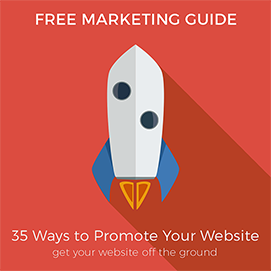WordPress is probably the best known content management system. It's very easy to use, there are lots of plugins for it and there are a lot of web designers who use it exclusively for all of their clients.
So is it the best system to use?
 In a word, no.
In a word, no.
Don't get me wrong, there's nothing intrinsically wrong with WordPress (well, very little anyway). But there is no "best system", there is no one size fits all approach to creating a website.
WordPress is a very good system for what it was designed for; allowing non-technical people to get a simple website up and running, quickly and easily.
That is its key advantage. It's fairly easy to use "out of the box" without any training. It's intuitive and you can work most of it out for yourself.
But, it also has some drawbacks (like all content management systems).
Firstly, it uses a linear programming model. This is basically an old way of doing things. If WordPress was a house, it would be built out of wood. Now, that's not necessarily a problem. Most US houses are made of wood and they manage just fine, but as a general building philosophy, bricks and stone are more durable, stronger, requires less maintenance and is less susceptible to problems.
The same goes for linear programming. Lots of small software systems use the linear programming method. But, it is inherently more susceptible to bugs and is more difficult to manage. That doesn't mean that WordPress has more bugs than other systems, but it is more difficult for the developers to make WordPress as good as it is. This is their problem, not yours.
However, it also means that developing plugins is made more difficult. The plugin framework is one of the worst ones out of the major content management systems. This means that the plugins available tend to be a lot less reliable than equivalents on other content management systems.
Another often cited advantage to WordPress is that it has a huge number of plugins. This is true, but then so do a lot of other content management systems. However, a lot of those plugins are poorly written, quite amateur, and frequently completely abandoned and unsupported. (Please note, I'm not saying "all plugins", there are many very good ones).
But none of this shouldn't really affect you if you are just using it to create your own simple website.
The problems only really arise when you try to make complex websites or run a web design business. WordPress was NOT designed to be used by web designers and web developers. Some of its little foibles make it a very difficult system to manage as a web developer. Even simple things like switching from a demo site to putting it on a live server are unnecessarily tricky when compared to other content management systems.
Unfortunately, there are many people who have discovered how easy it is to use WordPress and have decided that it's so easy that they can now run a web design business, just with WordPress. (It's a bit like discovering that you can do your own accounts with Microsoft Excel and deciding that makes you an accountant).
As I said at the start, there is no one size fits all CMS, so by limiting yourself to just one CMS you are limiting your potential customer-base. Or, you are unnecessarily shoehorning some of your clients requirements into an inappropriate CMS. That is not fair on those clients.
Now don't get me wrong, we have clients who are using WordPress. For them, it was the most appropriate CMS to use. And we actively advise people who are creating their own simple websites without a professional web designer to use WordPress.
We believe in using the right tool for the job, and that means matching the content mangement system to the customer's requirements, not the other way around.
But, because of the extra difficulties associated with WordPress from the developer's and maintainer's perspective, we have to charge more in support fees for WordPress than for other content management systems.
If you want a web design company which chooses the most appropriate software, rather than just our favourite software, then gives full training and on going support on using it, contact OpenGlobal E-commerce today on 0845 269 9624.












